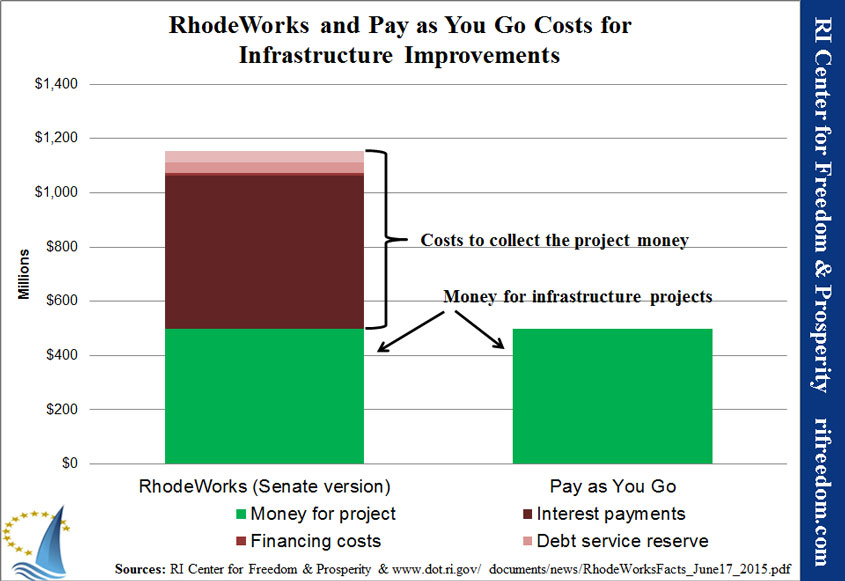STATEMENT: Center Blasts “Truck Toll Tyranny” as Bullying by RIDOT
FOR IMMEDIATE RELEASE: August 17, 2017
State to Restrict Free Movement of Goods?
Heavy-Handed Totalitarian Measure Seen as Preemptive Strike to Force Truckers to Pay Future Tolls
Providence, RI – In a heavy-handed edict, reminiscent of soviet-style totalitarianism, the state of Rhode Island is seeking to restrict the free-flow of goods and commerce by restricting trucker traffic on secondary roads. This, according to the RI Center for Freedom & Prosperity, in response to a RIDOT requested and approved agenda item at a 9:30 AM meeting today of the State Traffic Commission at the State House.
Rhode Islanders need a credible alternative to the status quo and its destructive progressive ideas. You can help.
Click here to find out more >>>
The RI Center for Freedom & Prosperity is the Ocean State’s leading voice against the wreckage caused by our state’s progressive agenda.
As the state’s leading research organization, advancing family and business friendly values… the mission of our Center is to make Rhode Island a better place to call home – to raise a family and to build a career.
While progressives value government-centric, taxpayer-funded dependency… our Center believes in the value of hard work and the free-enterprise system.
We understand that in order for more Rhode Island families to have a better quality of life, that more and better businesses are needed to create more and better jobs.
Your donation will help us fight the union-progressive movement and, instead, advocate for pro-family, pro-business policies and values.
Please make a generous, tax-deductible gift to support our Center today!
show less
“This is truck toll tyranny. It is an obvious preemptive attack against the RI Trucking Association by the State in a blatant attempt to force truckers to pay future tolls,” averred Mike Stenhouse, CEO for the Center. “The dishonesty of the State – in claiming this outrageous move is to preserve the safety of roads – is nothing more than government bullying of a political opponent. This restriction of free-commerce and the free movement of goods is something you would expect to see in soviet socialist countries, not in America. When the power of government is turned against its own citizens, especially when for petty political payback purposes, we all should shudder at this infringement on our liberties.”
The official letter acknowledging this agenda item, with details of restricted roadways:

This official letter from the state is a a heavy-handed edict, reminiscent of soviet-style totalitarianism, the state of Rhode Island is seeking to restrict the free-flow of goods and commerce by restricting trucker traffic on secondary roads.
The RI Center for Freedom & Prosperity is the Ocean State’s leading voice against the wreckage caused by our state’s progressive agenda.
As the state’s leading research organization, advancing family and business friendly values… the mission of our Center is to make Rhode Island a better place to call home – to raise a family and to build a career.
While progressives value government-centric, taxpayer-funded dependency… our Center believes in the value of hard work and the free-enterprise system.
We understand that in order for more Rhode Island families to have a better quality of life, that more and better businesses are needed to create more and better jobs.
Your donation will help us fight the union-progressive movement and, instead, advocate for pro-family, pro-business policies and values.
Please make a generous, tax-deductible gift to support our Center today!


